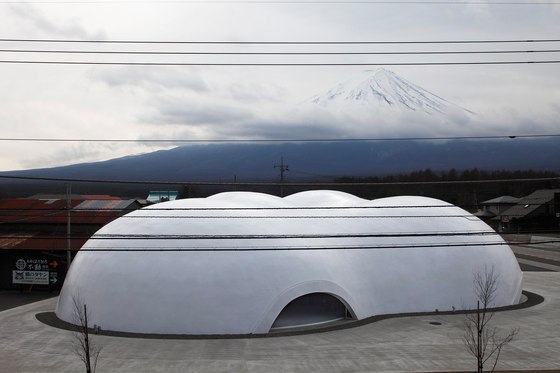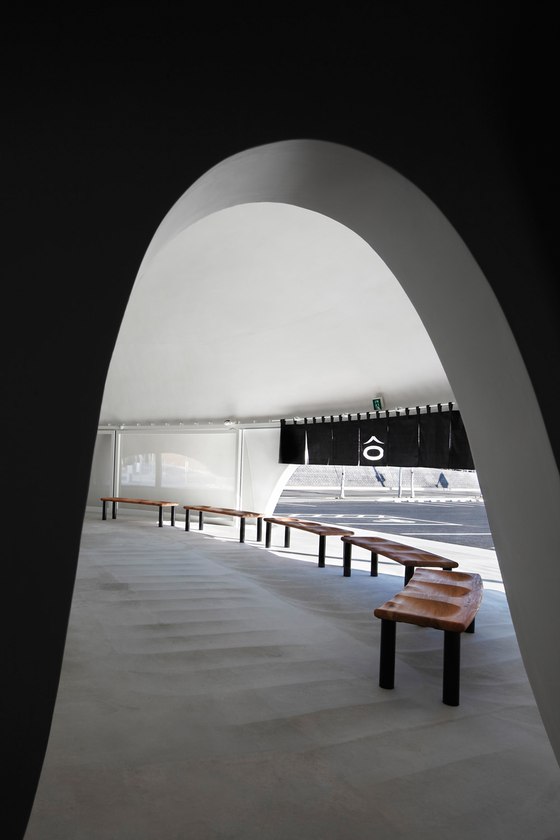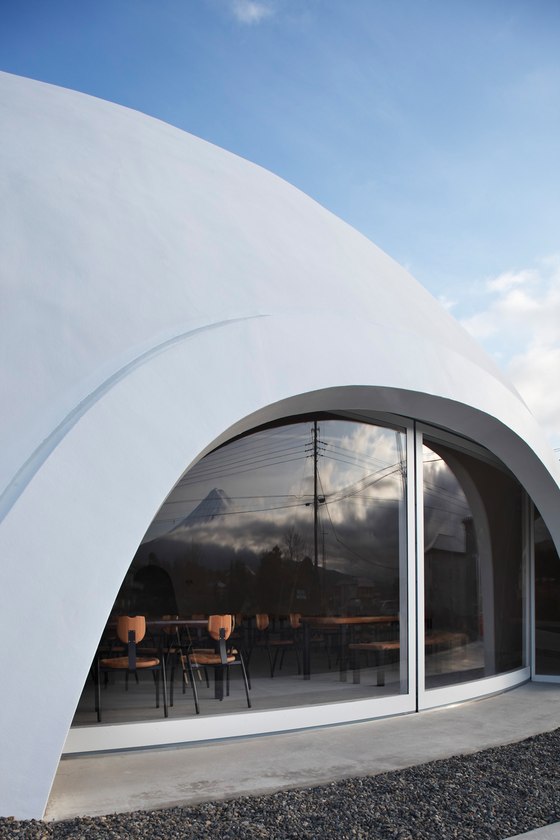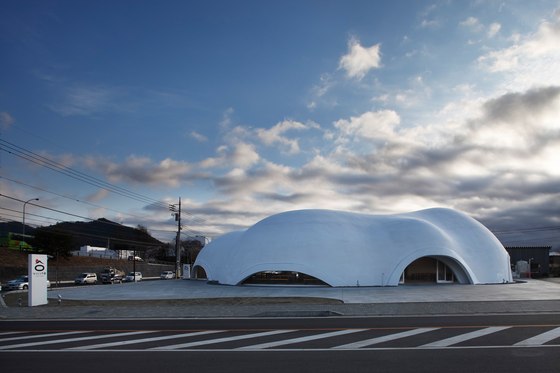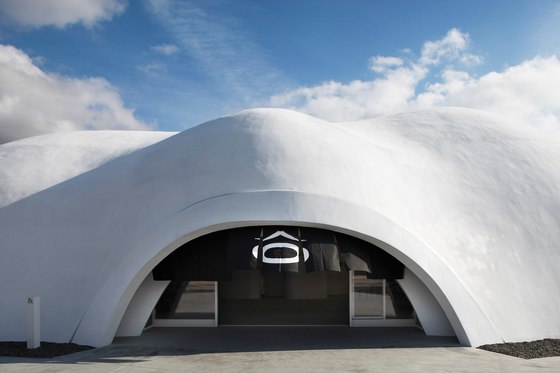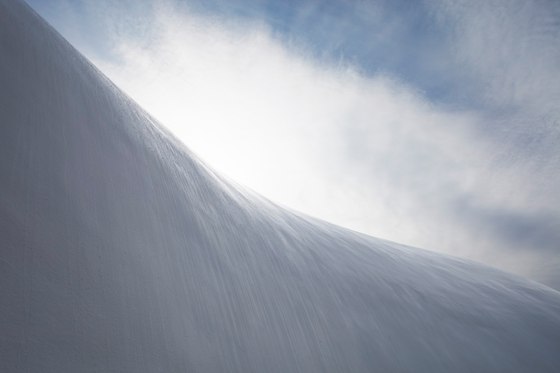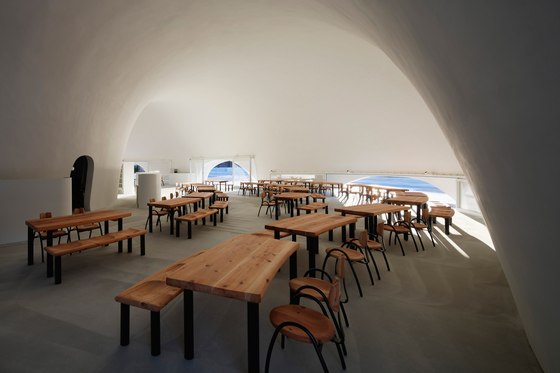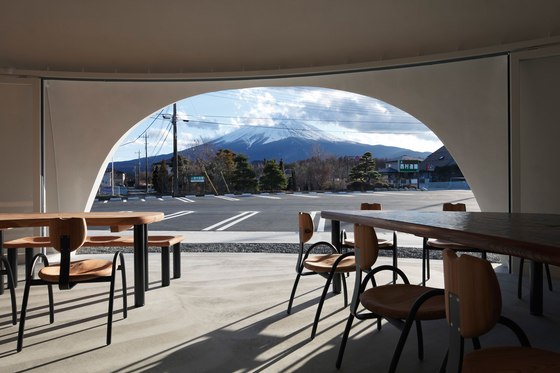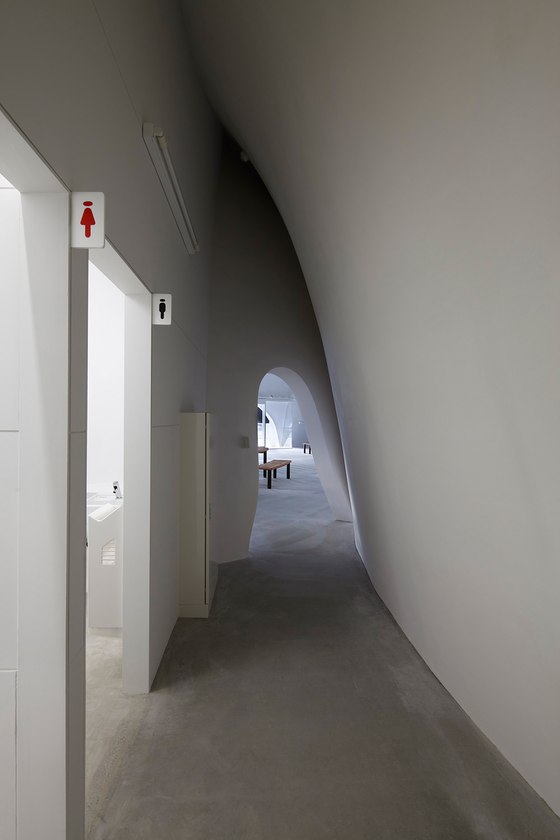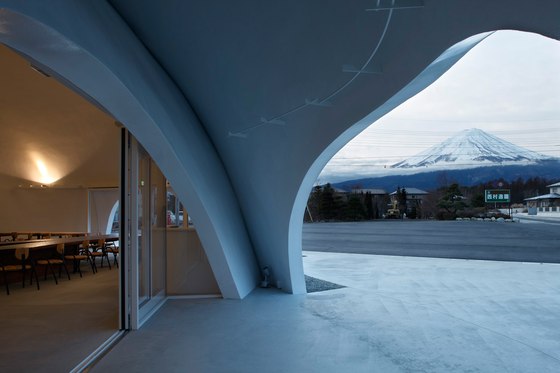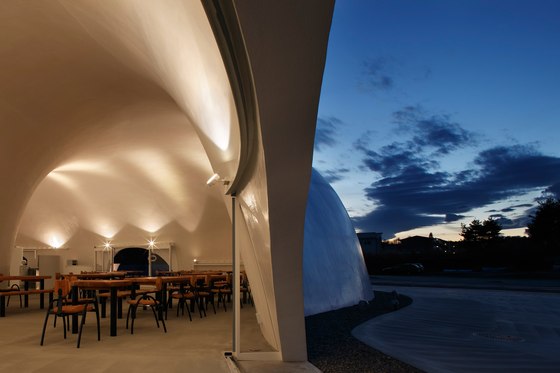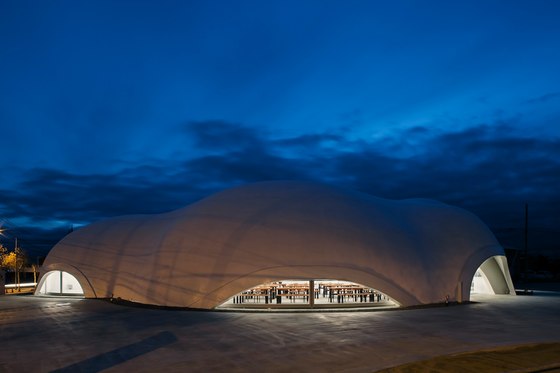This is a building like inside and outside.
The project was planned on the site with Mt. Fuji rising closely in the south and the two sides facing the trunk roads.
This building seems to belong to such nature objects as mountains and clouds. It is made from soft geometry, which will not arise from the figures like quadrangles and circles. By continuously operating innumerable polygon mesh points, we have determined the shape that clears the conditions such as the consistency as shell construction and the undulations that ward off rainwater in spite of its free geometry. The RC shell with cubic surfaces creates such spaces as 530 square meters of seats, 140 square meters of kitchens, and 50 square meters of rest rooms, in such a manner that it envelops and opens them.
This building has no air conditioners. It is open to the air at most seasons, and people have a meal in the air like outside air. The curved acrylic sliding door is closed only during the strong wind and the coldest season. Giving 60 mm thick urethane insulation to the outside of the RC shell and keeping a stable RC temperature secures a stable temperature environment for the building like inside and outside, and also reduces the deformation volume due to the temperature of RC to make the building last longer. For the lighting plan, we have determined such illumination as makes people simply feel changes in the evening light and does not make insects gather around the lights. When it rains, rain comes in near windows and doors. In the spaces where rain does not come in, people enjoy the sound of raindrops. When it is foggy, the fog comes into the building. When it snows, it becomes a landscape buried in snow, and birds and animals will visit there. In this place like the middle between nature and art, people eat hoto rich in natural ingredients.
*HOTO is traditional local noodle food.
In consideration of regional issues such as climate condition, heavy snow and seismic possibility etc, the new type of structure called “Sandwich RC Shell” was proposed to realise the integration of the unique architectural form and high structural, environmental, and lighting performance. Arup Japan was responsible for the structural, environmental, fire engineering and site supervision.
The sandwich skin consists of the main RC structure of 100mm thickness, sandwiched 60mm hard urethane for heat insulation and outer 15mm GRC (Glass fibre Reinforced Concrete) to prevent cracking and give high durability. This skin improved enhanced environmental performance, structural strength with light-weight shell and then a long-lived shell structure has been achieved.
This contributes 734 m² spaces with maximum 7.5m height RC shell structure with 1 above-ground floor, has realized by highly CAD and CAE between architect, contractor and ARUP. The shape is developed by applying the Form-finding analysis in order to reduce strain energy which is similar to Gaudi’s upside down forming. To minimise the complex formwork associated with the shell structure, the solution adopted was a “Truss Wall System (Pre-fabricated form work)” and approximately 200 units of 3D formed rebar truss were transported from a factory to site. This construction method made possible high accuracy of site work, short construction period and the reduction of complex formwork on site as much as possible.
The environmental design concept was developed to control the thermal comfort for the restaurant building minimizing the energy consumption. The items listed below have been taken into account to make the restaurant space comfortable through the year;
“thermal mass” to stabilize the internal surface temperature
minimal openings to protect form the summer direct solar radiation and to introduce required daylight into the indoor space
outer layer insulation with optimised thickness
adopt a sphere shape to maximise volume and minimise external surface area
white painted external surface to reflect the direct solar radiation
MRT (Mean Radiant Temperature) is stable through the year in the building due to the effect of “thermal mass” so that a cooling device is not required in summer and minimal heating device controls the indoor thermal condition. The visual comfort can be controlled using daylight so visitors can enjoy “HOTO” by the white coloured internal surface reflecting the daylight entering from outdoor.
Noboru Furuya
Structural Engineers: OVE ARUP & PARTNERS JAPAN Ltd/HITOSHI YONAMINE
